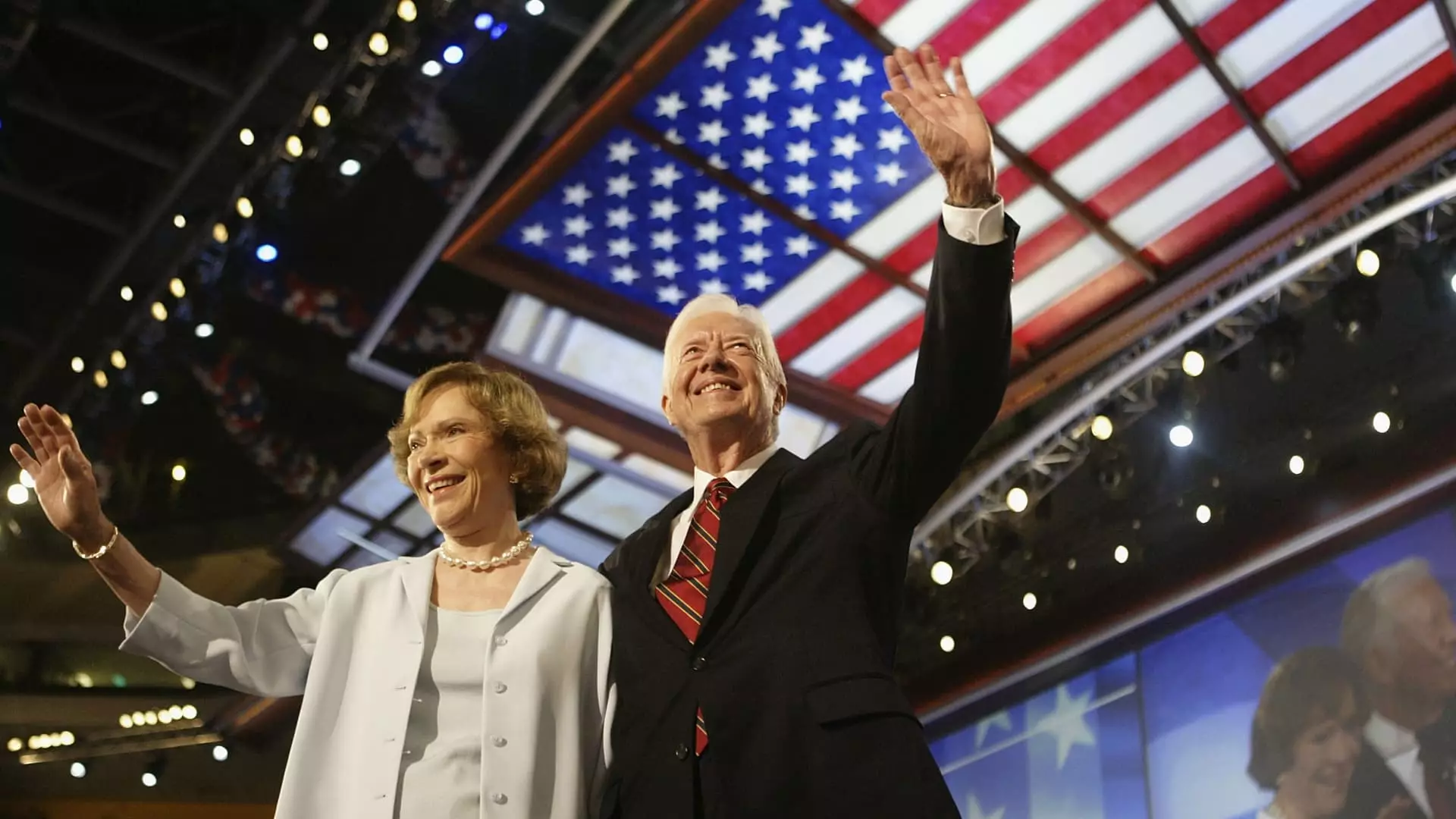The announcement of Jimmy Carter’s passing sent a wave of tributes across the political landscape of the United States. As the 39th president and a dedicated humanitarian, his influence extended far beyond his years in the Oval Office. Notably, his commitment to service and his unwavering faith in humanity resonated with leaders from both sides of the aisle, acknowledging a remarkable legacy characterized not by partisanship but by a shared respect for the values he embodied.
Carter’s presidency was marked by significant challenges, including economic strife and geopolitical tensions; however, his post-presidency years were particularly remarkable. After leaving office, he turned his attention to humanitarian efforts that highlighted his commitment to improving conditions for the less fortunate. The establishment of the Carter Center served as a testament to his dedication to global human rights and public health initiatives. Here, he focused on alleviating suffering and fostering democracy, values that transcended party lines and made him a beloved figure across the spectrum.
Immediate reactions from American political figures highlighted Carter’s profound impact on national consciousness. Senate Majority Leader Chuck Schumer articulated a sentiment felt by many, emphasizing that “the strength of a leader lies not in rhetoric but in action.” Such statements reflect a shared recognition that Carter exemplified a form of leadership often eclipsed in modern times—that of humility and service. Mitch McConnell, the outgoing Senate Minority Leader, captured the cyclical essence of his life’s work with a metaphor of farming, suggesting that like the fruitful returns of a well-tended land, Carter’s life was one of continually giving back to the society that nurtured him.
In a time where partisanship often dominates, Carter’s legacy offers a poignant reminder of what is possible when leaders prioritize collaboration and common values. Leaders like Bill and Hillary Clinton, who reminisced about their early support for Carter, illustrated the way in which he inspired a generation, emphasizing his efforts both in and out of the White House. Their reflections brought forth not only personal memories but also broader implications for political unity, showcasing how Carter’s example could still serve as a guiding light.
Carter’s post-presidency work reshaped the narrative of what it means to be a former leader. His involvement with Habitat for Humanity and various advocacy campaigns for public health exemplified his belief that service is a lifelong obligation. This led to profound humanitarian accomplishments, creating housing opportunities for thousands and championing initiatives that promoted social welfare. Such dedication has left an indelible mark and continues to serve as a model of what leadership can and should represent.
As senators and congress members shared their condolences, they also celebrated his influence, particularly in humanitarian realms. Figures like Senator Mike Lee underscored that, while Carter’s time in office may have been brief, his service in the years following left a significant impact on many lives. Teaching Sunday school and engaging with community service exemplified his belief in grassroots involvement, reminding citizens of the importance of faith and service on personal and communal levels.
Carter’s profound faith was often a focal point in discussions surrounding his values and decisions. His commitment to his Christian beliefs informed not only his political stances but also shaped his everyday interactions with those around him. Many politicians, such as Senator Chuck Grassley, noted the role that faith played in Carter’s life and legacy, emphasizing the common ground shared by leaders—an appreciation for the teachings of faith, regardless of their political affiliations.
This will resonate in the coming generations, as future leaders and citizens look to his example as an inspiration to commit to causes that foster unity and compassion. By leading a life that embraced service over self-interest, Carter reminded all of what true leadership entails: a responsibility to uplift others and effect change within one’s community.
Carter’s life was a tapestry woven with the threads of dedication, humility, and unwavering service. His legacy urges current and aspiring leaders to reflect upon the essence of their roles as public servants. As America commemorates this extraordinary individual, it is crucial to remember the lessons he imparted: that leadership transcends politics, and kindness—and dedication to the well-being of others—Shall remain the cornerstone of an enduring legacy. The outpouring of admiration and respect from a wide array of political leaders following his death stands as a testament to the unity he inspired and the values he championed, which continue to guide the nation he so dearly served.


Leave a Reply